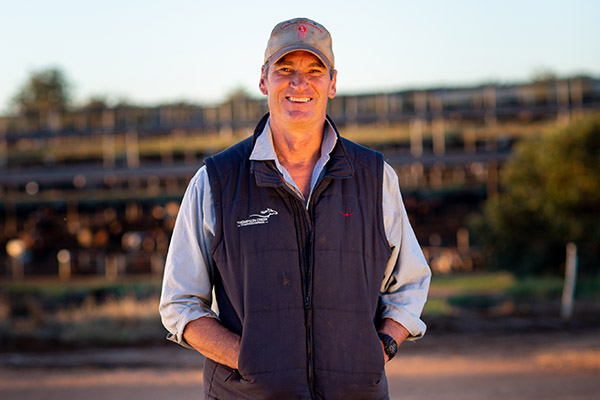There are a wide range of jobs offered within feedlots. Staff need to have strong attention to detail and contribute to ensuring a safe workplace. If you are willing to learn and have a passion for agriculture and cattle, then a career in lot feeding could be for you.
Feedlots are made up of a number of different departments, or teams. There are four main teams within a feedlot operation: livestock, feeding and milling, maintenance and farming and administration.
Varying levels of responsibility exist within each department. Staff can move from general hand, to leading hand and supervisor positions by gaining skills and knowledge and taking on more responsibilities. Management positions can be achieved through experience, knowledge and expertise across the entire feedlot operation, and gaining management and leadership skills.
Feedlot teams can range from 1-2 individuals, through to 25+ people. Each team completes their roles to their highest standard. When all teams work seamlessly together the feedlot can ensure the production of high-quality, grain fed beef.
Click on the Career stage and a role to learn more about the department opportunities.
The livestock team manages the daily health, welfare and movements of cattle at the feedlot. Each day, pen riders on horseback check each feedlot pen for sick or injured cattle. Livestock hands assess, treat and care for cattle with poor health in the hospital pens until they recover and can return to their home pen.
When new cattle arrive at the feedlot, they are inducted into the feedlot system by livestock hands. All new cattle have data recorded and are vaccinated, weighed and tagged. They are then introduced to a clean pen and the feed bunk.
Livestock hands or a dispatch team prepare finished cattle for dispatch. This can involve scanning, weighing, drafting and organising cattle onto trucks.
Animal health and welfare officers monitor and report on the health and welfare of cattle at the feedlot. The livestock manager organises the daily roles, coordinates the team and ensure optimum cattle welfare and performance.
Skills required in the livestock department may include cattle handling and husbandry practices, horse riding, assessing and checking animal health and low stress stock handling.
The role of the feeding and milling team is to prepare and allocate high quality, scientifically created feed rations to cattle within a feedlot. This team handles the delivery of feedstuff and controls storage systems. Staff have skills in using milling equipment to process and prepare the grain for cattle. Loader and feed truck drivers ensure well mixed rations are fed to the right cattle at the right time. The ‘bunk call’ is used to decide feed allocation for each pen of cattle. This area is required to be highly organised, efficient and precise.
The manager directs the staff and ensures the quality and regularity of the feed rations produced. They can also organise upkeep of equipment and machinery, and check feedstuff stocktakes and deliveries.
Skills required in the feeding and milling department may include using and driving large machinery, operating milling equipment, and a knowledge of cattle nutrition.
The maintenance team ensures the daily upkeep of the entire feedlot. This can involve vehicle and equipment maintenance, and improvements to pens, laneways and infrastructure. This team checks the water and energy supply for the feedlot, which is crucial for cattle welfare.
The pen cleaning team’s role is to manage manure and optimize the pen environment for cattle. They are also involved in organising manure storage, processing and dispatch for use as a feedlot by-product.
The manager coordinates the team’s daily roles and duties. They manage budgets, repairs and upkeep schedules and aim to limit the feedlot’s environmental impact.
Skills required in the maintenance department may include driving large machinery, vehicle upkeep and safely using workshop tools for feedlot upgrade.
The farming team is involved in work on production land linked to the feedlot. This may involve livestock handing, cropping, fencing, irrigation, energy and environmental management.
The administration team is the central hub of communication and coordination for the feedlot. Admin roles can involve data entry, invoicing, coordinating orders and deliveries and recording keeping. A weighbridge operator is in charge of weighing, recording and directing all trucks and deliveries that come in or out of the feedlot. Receptionists manage visitors or contractors and perform office duties.
Office managers will direct and organise the office team roles. Human resources and Work Health and Safety Managers are mostly upper management positions. These roles involve ensuring positive human relations, safety and improving staff skillsets.
Skills required in the office may include data entry, ability to use a variety of computer programs, organisation and positive dealings with clients.
Many people can advance quickly in their feedlot careers and move into management roles. Feedlot management requires people, business and professional skills, along with on the ground knowledge. The role of managers is to supervise the daily feedlot operations. They make sure the four main feedlot areas are organised and working efficiently. This ensures smooth running of the entire feedlot and allows the production of high-quality, grain fed beef.
The company executive team, or family board, determines the policies, operating plan and future direction of the business.

There are many other careers and skills involved in the feedlot industry at various parts of the supply chain.
Examples of these include:

Providing you with the training, education and career pathways to unlock the gate to your lot feeding career.
Proudly supported by ALFA and MLA.
© Feedlot TECH. All Rights Reserved.